Prof partners with SEE org for groundbreaking research on illicit massage parlors in Grand Rapids
Photo courtesy of Rachel Venema
Presentation slide of the report on illicit massage parlors
Sixteen massage businesses were found to run illicit (as in sexually favored) massage businesses in the greater Grand Rapids area. Social work professor Rachel Venema, along with two student research assistants, junior Nicole Sweda and senior Olivia Heeringa, and co-founders of SEE (Solutions to End Exploitation) Rachel Verwys and Missy Weismann found an average of 128 customers per day across the 16 different parlors, which means an average of 8 customers a day at a given site.
Venema explained that SEE wanted to explore looking at the illicit massage industry in Grand Rapids. She said that data on illicit massage parlors did not previously exist in Grand Rapids, and that the research was modeled after a similar study done by Texas Christian University professor Vanessa Bouche in Houston, Texas.
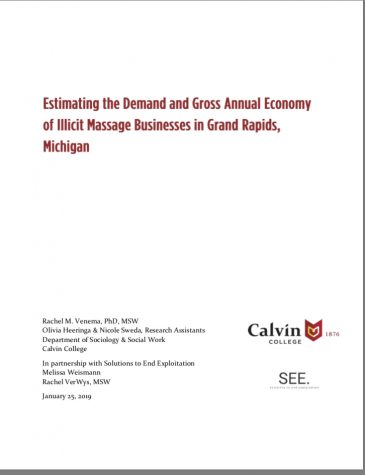
Cover of the report on illicit massage parlors
Using a website, Venema and her team were able to identify 16 potential Illicit Massage Businesses (IMB) in Grand Rapids. Upon identifying these locations, the team placed surveillance videos outside these businesses and measured the amount of time each client spent at each location. As they reviewed the footage, Venema explained, the team “coded several things that we were looking for; one of those things was counting and describing people going in and out of the business.”
Verwys, who is also an adjunct professor in Calvin’s social work department, explained that when it comes to human trafficking, researchers lack of data. As a result, this encouraged the team of researchers to conduct this study in order to provide concrete data in an effort to understand the problem of human trafficking. Verwys identified the IMB industry as one of 25 typologies (in which human trafficking functions today) listed on Polaris, “a non-profit organization that works to combat human trafficking.”
Verwys explained the hypothesis behind this research: “If we can understand one of the typologies, then we can move beyond awareness in hopes of implementing comprehensive victim-centered strategy in a collaborative manner.”
In their research, the team found that in Grand Rapids alone, the illicit massage industry is a 6 million dollar business.
Sweda, a student research assistant, explained this of her experience researching this topic: “These businesses exist in strip malls right alongside other legitimate businesses who have legitimate customers. These customers have no idea what’s going on right next door to them. We as a community also have no concept of what’s going on. We drive by these places every day and live in ignorance about what goes on there. It shocked me how little I knew about something like this in my own community.”
Verwys added, “Data is hard to explain, [however] data is a story to be told and we saw an opportunity to engage the Calvin community to take part in the solution.”
Beyond raising awareness about this issue in the Grand Rapids community, the research team wanted to engage the Calvin community in understanding the complexity of this issue. Verwys added that “measuring the economy and the demand is a unique way to begin to understand the problem.”



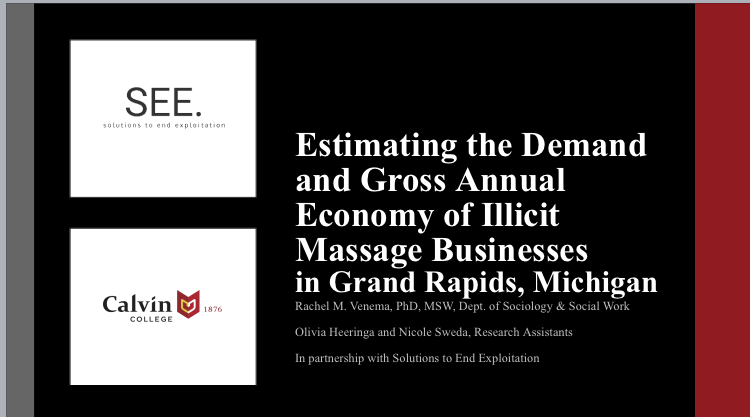
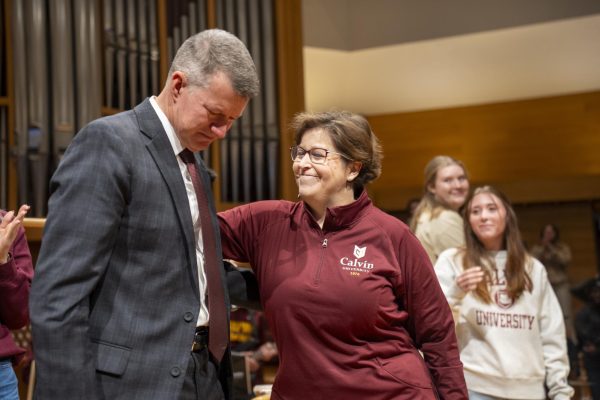
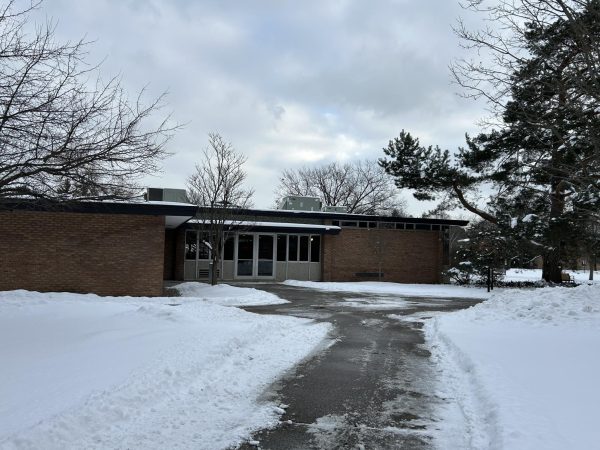
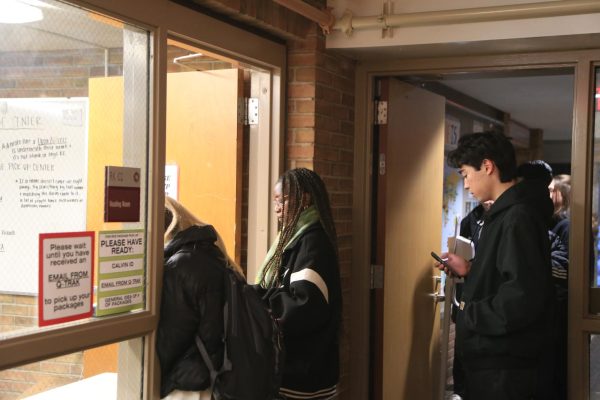

Kenneth A • Apr 29, 2019 at 2:18 pm
I don’t think that the community as a whole is as naive about this activity as Ms. Sweda is. As long as there is no human trafficking or slavery involved I would hope that law enforcement would continue to make this a low priority. I think that the only people who have a right to be upset are the legitimate professional massage therapists who get lumped in with these “rub and tug” establishments.
Simon D. Pieman • Apr 27, 2019 at 2:29 pm
How did the researchers know and verify illicit acts were being committed?